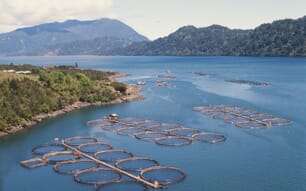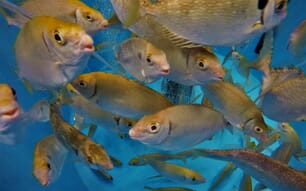Marine litter, defined by the European Commission as any persistent manufactured or processed solid material discarded, disposed of or abandoned in the marine and coastal environment, is an escalating environmental problem, reports Science for Environmental Policy.
To safeguard marine ecosystems, the Commission established the Marine Strategy Framework Directive (MSFD), which aims to achieve ‘Good Environmental Status’ (GES) for all EU marine waters by 2020.
One of the criteria for GES addresses marine litter and aims to achieve ‘properties and quantities of marine litter that do not cause harm to the coastal and marine environment’.
Of all the types of marine litter, plastic is perhaps the most problematic. On average, ¾ of all marine litter consists of plastics, which are particularly persistent.
A 2004 assessment of marine water samples found six times more plastic than plankton, while a more recent study estimated that as many as 5.25 trillion plastic particles, weighing some 269,000 tonnes, are floating on the sea’s surface.
Plastics can be introduced into the aquatic food chain when accidentally consumed by marine organisms, releasing dangerous chemicals. Although the ingestion of plastic debris by marine organisms is more common in oceanic waters, plastic has also been found in the digestive tracts of several organisms in the Mediterranean Sea.
However, there is very little information regarding plastic ingestion by fish.
This paper is the first to investigate the incidence of plastic debris in the stomachs of large fish living in the pelagic zone (the water not in contact with the coast or the sea floor) of the Mediterranean.
The researchers investigated three types of fish — swordfish (Xiphias gladius), bluefin tuna (Thunnus thynnus), and albacore (Thunnus alalunga) — all of which are top predators.
A total of 56 swordfish, 36 bluefin tuna and 31 albacore were collected from 2012–13 from the Central Mediterranean Sea.
The specimens were weighed and measured and the contents of their stomachs inspected for plastic debris. Of the 123 fish studied, 22 had plastic fragments in their stomachs — approximately 18 per cent .
As well as the plastics themselves, the Persistent, Bioaccumulative and Toxic (PBT) substances added to plastic during its production can have additional toxic effects on fish; previous studies have shown a link between the level of PBTs and reproductive changes.
Such findings are particularly concerning from a biodiversity perspective, as all three fish studied here are found on the IUCN Red List of Threatened Species.
This study shows just how ubiquitous plastic is becoming in the Mediterranean Sea, particularly in the water column where many large fish live, and provides a foundation for future assessments of the impact of plastic debris on these fish.
There is also another important aspect to consider here — human health. The transfer of chemicals from plastics to living organisms is dangerous and, via the consumption of fish that have themselves consumed plastic, may impact humans. This study therefore sets the stage for research to determine the human health impact of such consumption.
Source: Romeo, T., Pietro, B., Pedà, C., Consoli, P., Andaloro, F. & Fossi, M. (2015). First evidence of presence of plastic debris in stomach of large pelagic fish in the Mediterranean Sea. Marine Pollution Bulletin 95(1):358–361.




